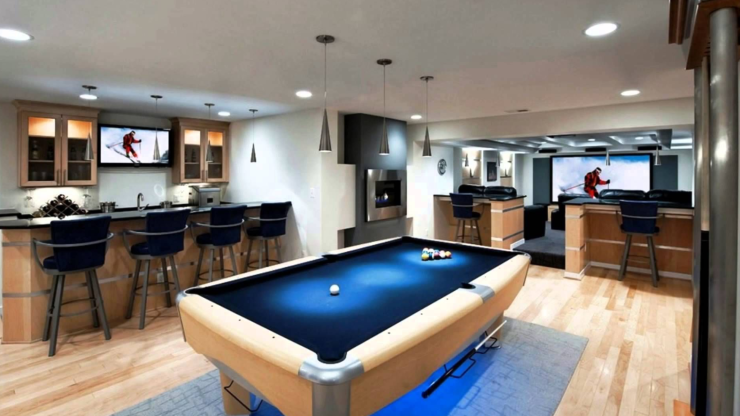Home Renovation Contractor: Planning & Executing Flawless Renovations
Home renovation contractors specialize in planning and executing renovation projects that meet homeowner objectives while maintaining quality standards, timeline commitments,...

Looking to make the most of your home’s square footage? Converting your basement into a livable apartment or rental unit is a smart way to boost property value and even generate passive income. Many homeowners recover their investment within a year of renting it out.
Whether you’re planning to create a long-term rental, in-law suite, or Airbnb, a finished basement can become a fully self-sufficient living space—often with less effort than a full addition.
Before you start demo or design, make sure your project complies with local zoning and housing codes. Every municipality is different, but typical regulations might include:
• Occupancy limits
• Fire safety and escape routes
• Separate entrances
• Parking availability
Tip: If basement rentals aren’t permitted in your area, you can still create a private space for guests or extended family members.
Cost can vary widely depending on your starting point. If your basement is already finished, your upgrade will cost less. But if you’re starting from an unfinished space, be prepared to invest more.
• Basic remodel: $10,000–$28,000
• Full conversion with kitchen and bath: $50,000–$75,000
Remember, adding a basement apartment often increases your home’s value. On average, about 70% of the renovation cost is recouped in resale value.
Decide early on whether you want a studio layout or a traditional apartment with separate rooms. The choice depends on your space, budget, and potential rental income.
Must-Have Rooms in a Basement Apartment:
• Living area
• Bedroom (or designated sleeping space)
• Full bathroom
• Kitchen
• Dining nook
• Closet or storage space
Pro tip: Look at local rental listings to see what features are in demand.
Even if you're a seasoned DIYer, basement conversions usually require licensed professionals for:
• Plumbing
• Electrical work
• Insulation and HVAC
• Drywall and framing
A licensed contractor can also help ensure everything is up to code and passes inspection.
Here are the essential steps to converting your basement:
This is often legally required and also provides renters privacy.
Create clear zones for sleeping, cooking, and relaxing—even in a studio-style space.
A separate system helps manage bills and comfort more easily.
Consider separate meters for utilities if you'll be renting it out.
Ensure proper waterproofing and insulation. Unfinished basement? Start here: [How to Finish a Basement].
Flooring & Design Tips
Basement floors can be cold and damp. Carpet adds warmth, while luxury vinyl planks or engineered hardwood resist moisture better than solid wood. If using tile or hardwood, radiant floor heating is a great bonus.
Design Advice:
Stick to light or neutral paint colors to reflect limited natural light. Avoid bold color trends unless you're okay with frequent touch-ups. Use mirrors and good lighting to make the space feel bigger.
Must-Have Amenities
• Kitchen: Stove, fridge, microwave (bonus: dishwasher)
• Bathroom: Full shower or tub
• Laundry: A stackable washer/dryer fits easily into a closet
• Storage: Even minimal closet space adds value
If you're renting short-term (like on Airbnb), furnishing is a must. For long-term rentals, furnishing can increase rent—but be ready for wear and tear.
Once your space is ready, it’s time to market it. Take clear, high-quality photos in natural light and write a standout listing description.
Where to List Your Basement Apartment:
• Airbnb
• Zillow Rental Manager
• Apartments.com
• Apartment Finder
Transforming your basement into an apartment is a big project—but the payoff is just as significant. Whether you’re creating extra income or a welcoming space for family, the investment can add long-term value to your home.
Looking to make the most of your home’s square footage? Converting your basement into a livable apartment or rental unit is a smart way to boost property value and even generate passive income. Many homeowners recover their investment within a year of renting it out.